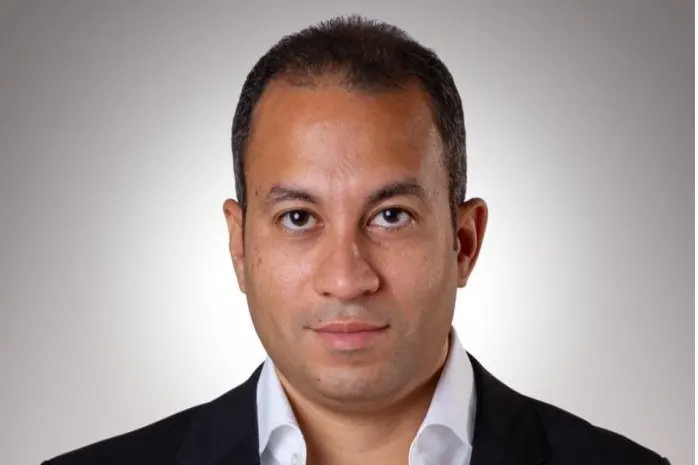PHOTO
Private institutional investors are poised to play a greater role in Egypt’s embattled education sector in the coming years, according to Mohamed El Kalla, CEO of Cairo for Investment and Real Estate Development (CIRA), one of Egypt’s first education investment companies.
“There is a high need for the private sector to offer solutions that could cover the huge number of students that get enrolled in schools as well as those who graduate every year,” Kalla told Zawya. “The government’s budget cannot cover that.”
For decades, Egypt’s private schools have been owned and operated by families or individuals.
However, in recent years, private education has attracted a handful of institutional vehicles bringing together large local corporations as well as banks.
“It is true that some family-owned chains of schools have succeeded in Egypt, but [what] about the scale? Egypt is about scale. Boutique family services cannot solve Egypt’s problems,” he added.
CIRA was founded in 1993 to serve as an integrated provider of private educational services. Today, the company owns and operates 21 schools and with 45,000 students in total.
“The awakening of this sector could be traced to the day CIRA became listed on the Egyptian stock market,” he said. “CIRA came as a cold shower for this industry.”
According to Canada-based investment management company Colliers International, Egypt’s private sector K-12 student growth has almost doubled in the last five years at a CAGR rate of 6.3 percent, compared to 3.6 percent in the public sector. The number of enrolled K-12 students is expected to reach 34 million in 2030, creating a demand for an additional 11 million seats. The private sector is expected to provide at least two million of those needed seats.
A MIDDLE-CLASS-FOCUSED STRATEGY
Unlike many investors, CIRA targets middle-income Egyptians who seek high-quality education for their children, away from overcrowded and dilapidated public schools. CIRA doesn’t try to cater to deep-pocketed parents who eye the highly expensive so-called “international schools.”
“My top priority is affordable education and good quality,” he said. “Four or five of our 21 schools are highly expensive; however, the average annual tuition fees at most of our schools is $1,000.”
In 2018, CIRA became listed on the Egyptian Exchange (EGX) at a value of EGP 1.244 billion. Since then, according to Kalla, the company’s value continued to climb until it reached EGP 7 billion. In July, the company announced that it had earned EGP 1.3 billion in revenues from September 2020 to May 2021, marking 28 percent y-o-y growth.
“Why do you think CIRA stock prices are stable? This is because we have high utilization at our school of at least 90 percent and we have a supportive customer [base],” he said, referring to middle-class Egyptians. “When the middle-class finds a good service, they stick to it. However, A-level customers are what I call trend followers,” he added.
Kalla went on to criticize the rush among investors to create more high-end niche schools. “Most investors are competing over the top 3 percent of the population and they are forgetting the bulk of opportunities lies underneath that top percentile,” he said.
The same logic has recently found its way to higher-education investors, Kalla said, referring to recent endeavors in eastern Cairo. Under the slogan “Study abroad in Egypt,” the Knowledge Hub was launched in the New Administrative Capital as a multidisciplinary hub, hosting branches of world-class universities. So far, six universities have been created in partnership with European, Canadian and British universities. Annual tuition fees at most of these new campuses start at $10,000.
“It is a good trend, but I do not think it offers the best solutions, because most of the demand in Egypt is not for such international universities,” Kalla said.
FROM NURSERY TO COLLEGE
CIRA has been focusing instead on investing in more affordable private universities in under-served Egyptian provinces. In 2014, CIRA launched Badr University in a middle-class neighborhood outside Cairo. The university hosts sixteen different schools, including medicine, engineering, social sciences and humanities.
CIRA is also building a university in the Upper Egyptian province of Assiut that is expected to begin admitting students no later than Spring 2023. The project is financed by the European Bank for Reconstruction and Development and is expected to host the largest multi-disciplinary campus in Upper Egypt, Kalla said.
In addition, Cairo Egypt for Education, a consortium formed by CIRA and Elsewedy Capital Holding, announced in August that it will launch a private university in the delta city of New Damietta with a total investment of EGP 2.5 billion.
CIRA has recently seen new opportunities in early education too. “There is a huge demand for pre-schools; however, we do not have the physical space in our schools for these divisions, so I am creating nurseries around my schools with affordable tuition,” he said.
In January, CIRA acquired a 51 percent stake in early education startup Innovvette for Education, with plans to invest some EGP 50 million in launching 25 nurseries over the next four years.
However, such investments are usually forced to navigate a quite outdated regulatory framework. While acknowledging government’s efforts to ensure that investors have diverse financing tools as well as easier access to land, Kalla said that bureaucracy remains an insurmountable hurdle: “It can take me one year just to secure approvals for a new school and up to two years and a half for any new university. I see a bright future; there is an actual demand on the ground and an actual willingness to supply. We just need to connect the dots. We need to make our processes easier in order to capture this momentum.”
(Reporting by Noha El Hennawy; editing by Seban Scaria)
This article is provided for informational purposes only. The content does not provide tax, legal or investment advice or opinion regarding the suitability, value or profitability of any particular security, portfolio or investment strategy. Read our full disclaimer policy here.
© ZAWYA 2021





















